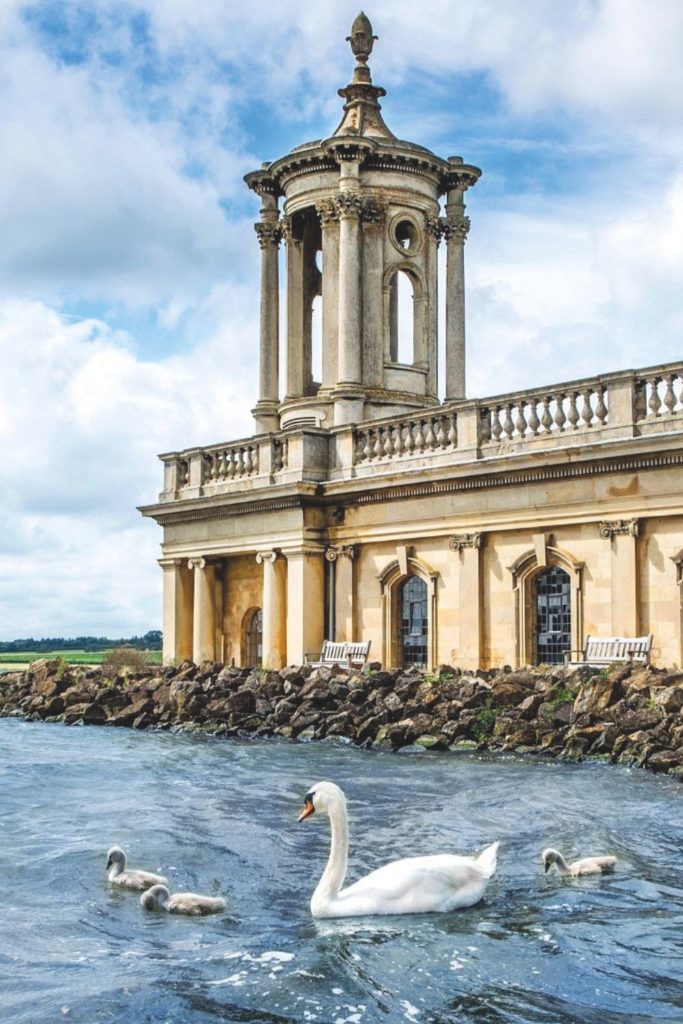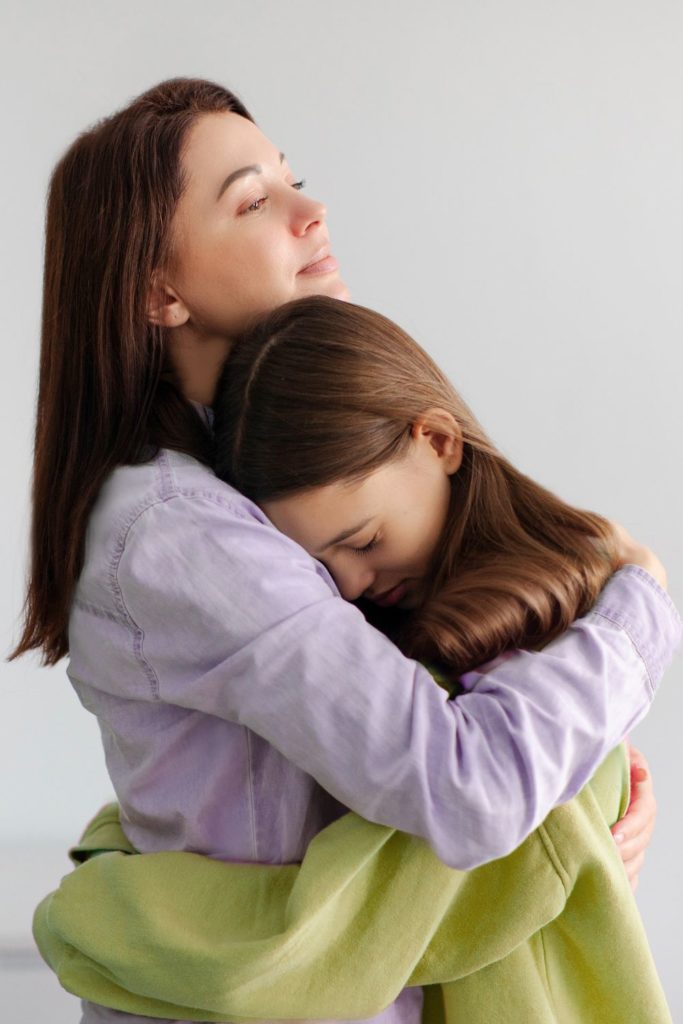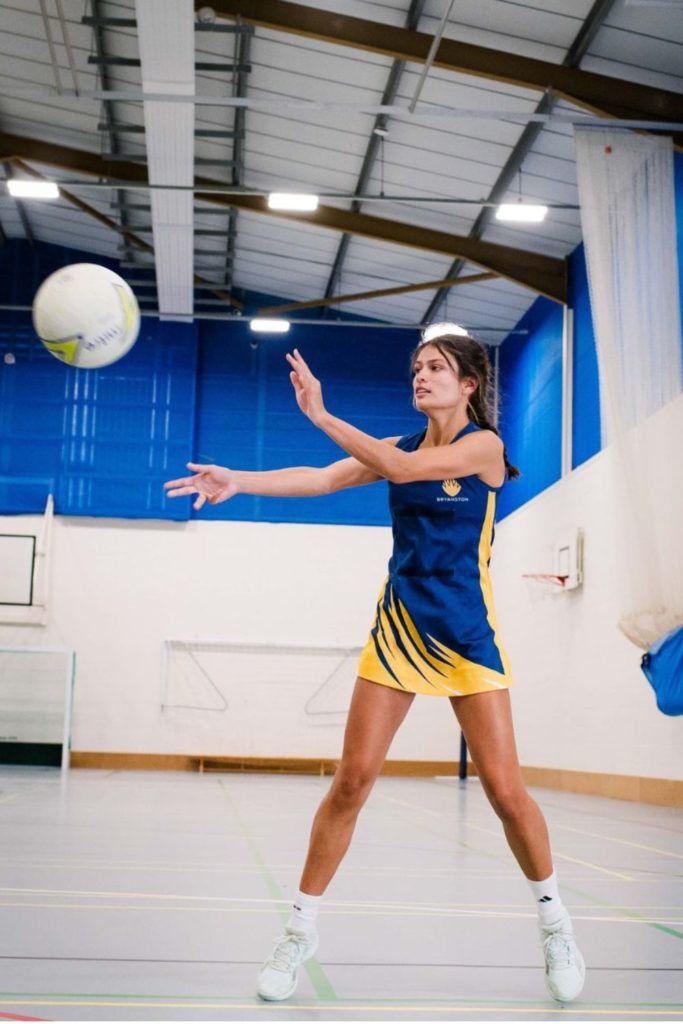Education’s Best-kept Secret
By
3 years ago
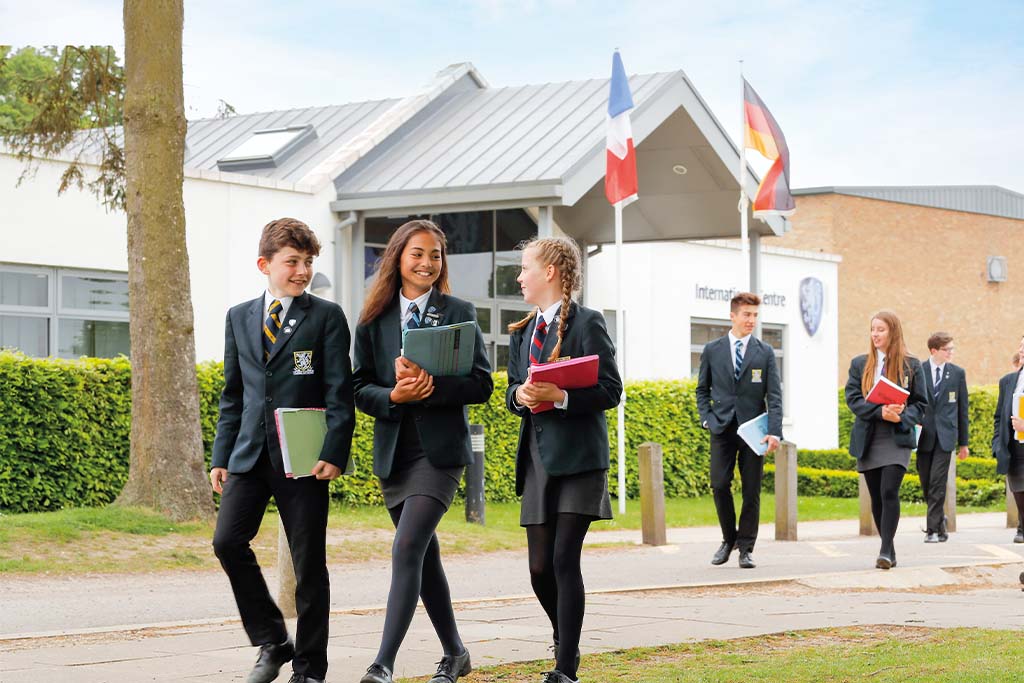
Places at the 34 boarding schools run by the state are little-known but highly sought after, finds Peter Stanford
What I like most about Wymondham,’ enthuses Alison Leinster, who has sent both her children, Oliver and Connie, to this highly rated state boarding school in Norfolk, ‘is the feel of it. When you are there, it is like a university campus. There is always something going on and it all happens on a single site.’
About 60 per cent of Wymondham College’s 620 boarders (out of 1,400 pupils in total) come from Norfolk. Many come because state schools in this predominantly rural county, England’s sixth largest, are thinly spread. And high-achieving ones thinner still.

For Norfolk parents reluctant to send their son or daughter to the struggling local academy or comprehensive, but unable to manage typical independent boarding school fees of about £40,000 a year per child, state boarding at Wymondham (pronounced Wind-ham in that time-honoured Norfolk way designed to trip up outsiders) provides an affordable option. At the 34 schools that are listed as members of the State Boarding Forum (Wymondham is the largest), public funds cover the cost of the teaching, with parents asked to pick up the bill for the boarding element. It typically comes in at between £10,000 and £18,000 per annum.
While Alison Leinster and her husband were making a decision about Oliver’s secondary education, they looked at local independent day schools as another option. Their son, now at university, had been attending an independent prep school as a day pupil, where he had occasionally boarded and he had really enjoyed that experience. ‘Once he had had a taste of it, he knew he wanted more,’ Alison recalls. ‘He didn’t want to give it up.’
Sometimes, of course, children can’t have what they want. Or parents know better. But for the Leinsters, there were also resolutely practical reasons for going along with his wishes. ‘Oliver is a very sporty boy, as is his sister, who followed him to Wymondham. Between them they do swimming, cricket, tennis, karate and horse riding. It just wouldn’t have been possible for me to fit in driving them round to all these activities once their day school had closed its gates at four o’clock. On the Wymondham campus, they all happen in the same place, and they can go there without me spending my life in the car.’

State boarding schools are regularly referred to as ‘education’s best-kept secret’, though the past 20 years have seen their numbers and their reputation growing.
However, the direction of travel is not uninterruptedly upwards. The combination of the impact of the pandemic and Brexit (to qualify for state-funded teaching at state boarding schools since January 2021 you have to be a UK national or have the right of residence here, whereas previously they were open to all EU nationals) has seen a number of schools with smaller boarding operations close them down. Like De Aston School, a mixed academy in the Lincolnshire town of Market Rasen, which had 80 boarders as part of a total intake of just under 1,000 until 2020.
With strong government support as part of their drive to enable more parental choice in education, plus in many cases an OFSTED-endorsed reputation for academic excellence, state boarding schools are overall in good shape, with almost 6,000 places now available.
Some schools are local-authority run, others are Free Schools, academies and part of wider educational trusts or charities. Holyport College in Berkshire, for example, was sponsored by nearby Eton College when it started up in 2014 as the first boarding-and-day-pupil Free School.
At the other end of the timescale is Lancaster Royal Grammar School, founded in 1472, regularly rated Outstanding and with 170 boarders among its 1,200 pupils.
Though there are only 34 state boarding schools in England and Wales to pick from – plus two in Scotland (Oban High School and Queen Victoria School, Dunblane) – they range between the academically selective, single sex or mixed, those that interview and those that don’t, and those that take under 11s or others that only cater for sixth-formers like Richard Huish College in Taunton, Somerset, which – in its own plain-speaking description – ‘offers an independent school sixth-form experience at a fraction of the cost.’ Another distinction is between those that offer a choice only between ‘full’ boarding and being a day-pupil, and those that provide a hybrid that sits somewhere in between. At Gordon’s in Woking, Surrey, founded in 1885 in memory of the war hero General Gordon to help ‘necessitous boys’ but now a non-selective state boarding school, pupils are put into one of three categories: full boarder, weekly boarder (who go home at weekends) and day boarder.
This final grouping covers those who continue to live at home. Day boarding is essentially a boarding school experience minus the bed. But, while the taxpayer funds their classroom education, a compulsory day-boarding fee of £3,000 per term (roughly half the rate for weekly boarders) covers all extra-curricular activities during a school day that starts at 8:20am and ends at 7:30pm.
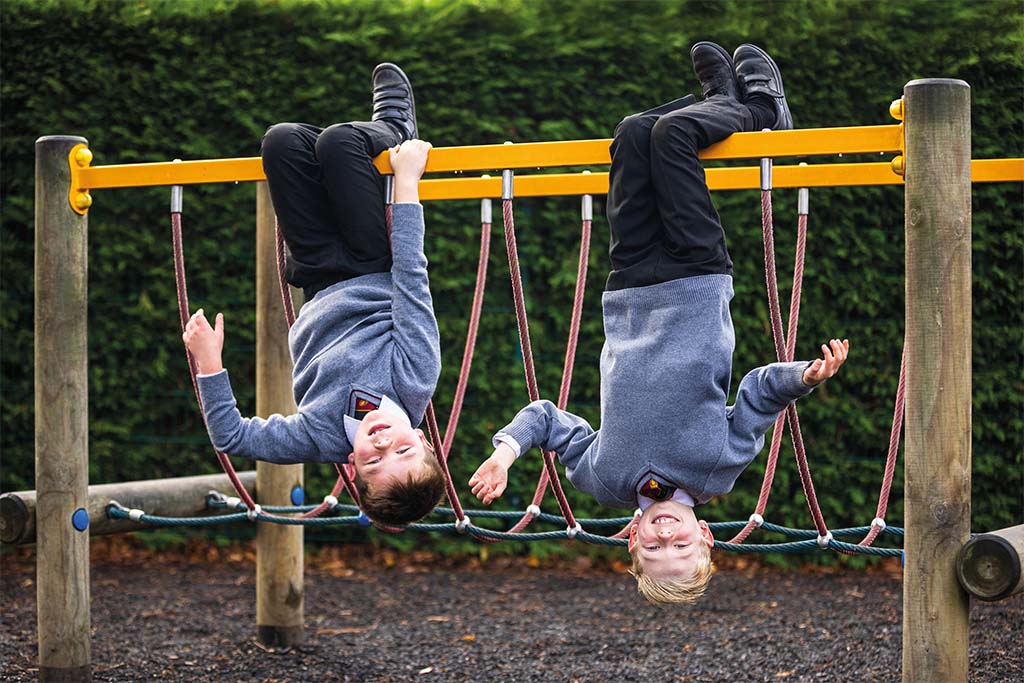
At nearby Royal Alexandra and Albert School in Reigate, the result of a merger in 1949 between two long-established philanthropic facilities, the same group of pupils are referred to as flexi-boarders. Their fees are between £1,580 and £2,165 depending on age, with means-tested bursaries available and 33 per cent reductions for the children of stipendary Church of England clergy. Currently, there are about 650 flexi-boarders, mostly local, learning and all-but-living alongside 480 full boarders, many drawn from military and expatriate families.
Not all the schools have the traditional grandeur of an independent school but some do, like Royal Alexandra and Albert, which operates in the middle of Gatton Park, a vast Capability Brown-designed landscape with its own lake, orchards, equestrian centre and allotments. The sixth form is housed in a Grade II-listed mansion.
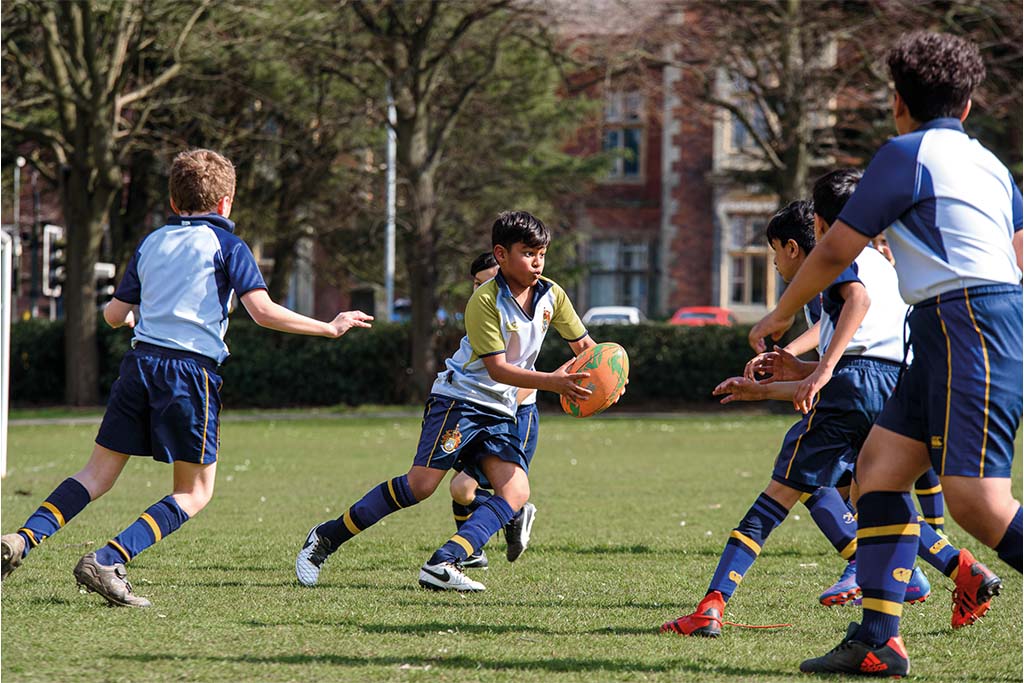
Camilynn Baker’s two sons, nine-year-old Leo and Jack, 12, are both flexi-boarders there, but it was neither the grounds nor the facilities – excellent though she agrees they are – that made her choose state boarding for them. ‘We chose it because of the wrap-around care the school provides,’ she explains.
‘It has a homely feel, and everything they do, in the classroom and outside, is contained in one site. If my children weren’t there, they would be in the car going after school to five different places every week to do sport and other activities.’
Both boys had been in local state primaries near where they lived in east Grinstead, but Camilynn took them out to join Royal Alexandra and Albert’s junior section – which starts from Year 3 (age eight).
‘It removed all those worries over secondary school transfer,’ she says, ‘and was so seamless. Jack joined in Year 6 (aged 10, the final year of primary school) so it gave him a chance to get used to the place.’ Many day-boarders join in Year 7, at the same time that pupils at state primaries go on to state secondaries.
The extended hours of flexi-boarding suit Camilynn well as a working mother (who recently joined the team in the school office). ‘It fits with modern working patterns,’ she says.
‘If I have an early meeting, I can drop my sons off at school first where they will be given a delicious cooked breakfast, rather than rushing them through cold toast at home. ‘And,’ she adds, ‘if I am going to be late home, there is no worry about having to buy ingredients and cook a nice dinner. They can eat at school.’
As far as Camilynn is concerned, rather than being an extra drain on the family’s finances, flexi-boarding represents real value for money. ‘If I was fitting work round normal day-school hours,’ she points out, ‘I’d be spending more on childcare to fill the gaps between when my sons finished and when I finished.’

Gordon’s and Royal Alexandra and Albert both have their roots in philanthropic foundations of earlier centuries. So, too, does The Royal School in Wolverhampton, a non-selective, non-denominational Free School that takes boys and girls from the ages of four to 19. Set up in 1850 as an orphanage by local businessman John Lees, it went through various incarnations in the state and private school systems before being granted Free School status in 2014. It has 1,464 pupils on its 25-acre site, with 350 of them as day boarders alongside 80 full boarders and a strong contingent in this group being from Forces families.
A distinguishing feature of its make-up – in line with its original purpose – is that it makes a point of providing both education and a caring, empowering environment in which to learn for vulnerable and looked-after children including those in foster care and young unaccompanied asylum seekers.
‘What we hope to live out,’ says Headteacher Mark Heywood, ‘is a wider remit that makes this a social mobility school. That is an aspiration that we share with our parents.’
And an aspiration that is becoming reality. The school, Heywood reports, is oversubscribed, while on a recent visit OFSTED said of its particular ethos: They (pupils) see the school’s diverse population as a strength. The school is a harmonious, multi-cultural community where equality of opportunity is enshrined in all areas of school life.’
The school community was particularly deligted that Ofsted confirmed that, at the school, ‘personal development and welfare is outstanding’. It is also the most oversubscribed senior school in
the country.
With state boarding schools, the usual parental checklist around exam results, good facilities and home-from-home style care are every bit as important as in their equivalents in the independent sector. The obvious bonus they offer is that the challenges posed for family budgets by fees – especially in this cost-of-living crisis – is mitigated by having the cost of the classroom education met by the state.
Yet what this sometimes overlooked sector of the education system is delivering, despite its small numbers, is a wide-ranging, innovative and thoroughly contemporary style of education, geared to the needs of pupils, parents and the modern world. Can you afford not to take a look?
See the online listings here: Royal Alexandra and Albert School, Eton College


